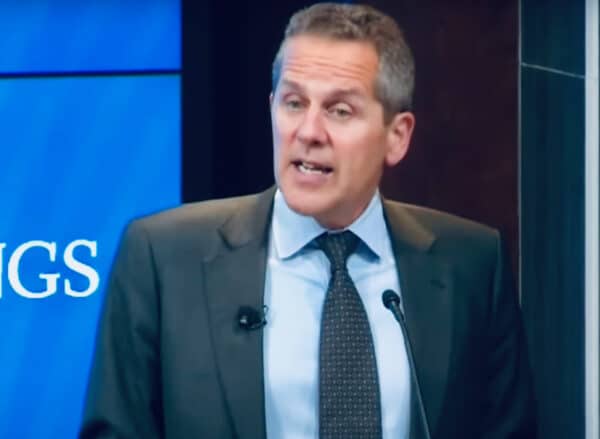Yesterday, during a speech delivered at the Brookings Institute, Federal Reserve Vice Chairman Michael Barr, addressed the topic of risk in financial markets along with pointed criticism of stablecoins specifically. While warning about private money, Barr embraced the broader topic of innovation in financial services.
Barr said that a priority for him as Vice Chairman for Supervision is oversight and regulation of stablecoins. Barr stated:
“Stablecoins, like other unregulated private money, could pose financial stability risks. History shows that in the absence of appropriate regulation, private money is subject to destabilizing runs, financial instability, and the potential for widespread economic harm. In the nineteenth and early twentieth centuries, before the advent of prudential bank regulation and deposit insurance and before action was taken to ensure private money creation by banks was appropriately regulated, repeated crises did substantial damage to the US economy. I believe Congress should work expeditiously to pass much-needed legislation to bring stablecoins, particularly those designed to serve as a means of payment, inside the prudential regulatory perimeter. I look forward to continued partnership with other regulatory agencies and Congress to address the risks of stablecoins.”
Barr added that innovation should make the financial system “fairer” while cautioning on consumer protection needs. Barr said they “should welcome financial innovation as a positive force that can increase access and lower costs for individuals and businesses.” The caveat is that new forms of finance can add additional risk to consumers. He added that crypto assets are an example of rapid growth and excitement where consumers don’t really understand the risk – until it is too late and they have experienced significant loss. Barr said that crypto requires greater oversight.
“We plan to work with other bank regulatory agencies to ensure that crypto activity inside banks is well regulated, based on the principle of [the] same risk, same activity, same regulation, regardless of the technology used for the activity. I plan to make sure that the crypto activity of banks that we supervise is subject to the necessary safeguards that protect the safety of the banking system as well as bank customers. Banks engaged in crypto-related activities need to have appropriate measures in place to manage novel risks associated with those activities and to ensure compliance with all relevant laws, including those related to money laundering.”
Currently, there are several bills working their way through Congress. In fact, the House Committee on Financial Services indicated there would be a markup on a stablecoin at some point this month. Both the House and the Senate have moved slowly to craft legislation designed to regulate digital assets largely due to a lack of understanding of the technology. There remains a concern that over-regulation could stymie benefits while avoiding new rules could create more problems. The Securities and Exchange Commission has pursued a path of regulation by enforcement declaring all digital assets as securities and thus fall under existing securities law – much to the chagrin of industry participants.


